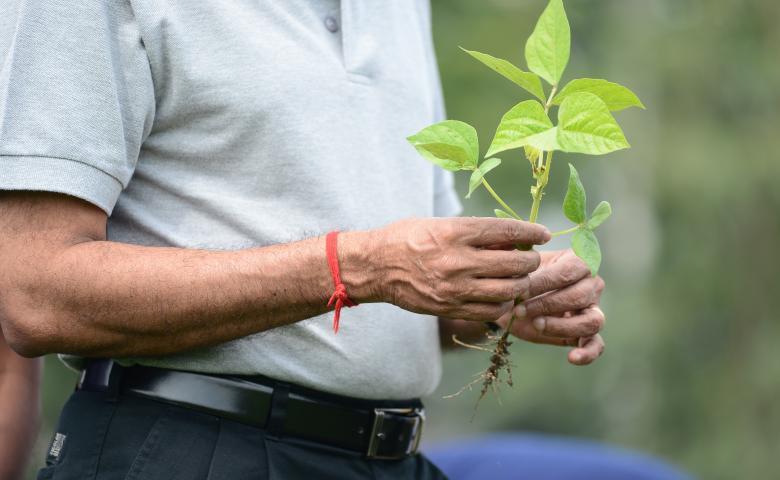While the COVID-19 pandemic reveals its impacts not only on human health but also on the global food system, governments are discussing how our global economy should be revitalised. Thus, this is the right moment to ask our political leaders to use this opportunity to prompt a shift to more sustainable production and consumption patterns and to turn this dramatic situation into an occasion to courageously address the next global crisis ahead of us: climate change.
This pandemic has been fiercely showing how fragile and unequal the environmental and socio-economic pillars are on which our society rests. Trade restrictions, border closures and labor shortages are seriously affecting regional agricultural value chains and posing risks to household food security.
The recent news, regarding the rapid spread of Covid-19 occurring in slaughterhouses in a number of countries around the world are a clear example of how this new virus is bringing old issues to light. It almost seems like this pandemic wants us to rethink how our food is produced and distributed.
With such premises, the workshop on livestock management and the socio-economic and food security dimensions of climate change, which will be organized next year in the framework of the Koronivia Joint Work on Agriculture, a workstream within the UNFCCC, is a great occasion to further discuss the COVID-19 consequences on our food system.
In order to strive for the inclusion of agroecology and organic farming as pathways for achieving the transformative change needed, IFOAM – Organics International prepared a joint technical submission on the topics of the workshop with contributions from IFOAM Organics Europe, FiBL and Biovision.
Originally plan for October 2020, this Koronivia workshop on livestock management and food security, as all climate negotiations, has been postponed to next year due to the impossibility of all delegates to meet in person and to ensure a proper multilateral process. For the first year since 1995, also the Conference of the party has been postponed and COP26 should be held in Glasgow in November 2021. Even though negotiations have been deferred, this does not mean that countries should not take action now and increase ambition in their climate pledges. The use of recovery funding packages, which are currently adopted in many countries to respond to the unprecedent economic crisis caused by the pandemic, should be made conditional to the adoption of technologies and production systems that will really deliver on achieving net-zero emissions by the mid of the century.
In our submission, we stressed in the first place the importance of adopting a holistic approach that strengthens resilience and generates sustainable environment, economic, and social benefits. Such an approach must not overlook strategies like reducing food waste and modifying consumption patterns towards plant-based proteins.
Animal husbandry done according to agroecological practices, such as organic agriculture, and with a focus on non-food-competing feed, provides sustainable production systems that are adapted to the local conditions and carrying capacities of ecosystems. It is also important to ensure the decrease of GHG emissions in the meat and dairy sector by cutting deforestation and nitrogen oversupply and corresponding emissions.
We are also asking for a better and stronger integration of the food security framework in the current and future workstreams related to agriculture and climate change. This could be done by setting criteria that tightly link responses to the climate crisis with the food security dimension.
Finally, we are urging parties to recognize the socio-economic aspects embedded in agroecology, which will provide increased resilience and mitigation co-benefits, in particular through co-creation and sharing of traditional knowledge and fostering local food networks and knowledge webs.
The Koronivia Joint Work on Agriculture (KJWA), adopted by COP23 in 2017, marked an important turning point for the inclusion of agriculture in the international climate negotiations within the UNFCCC. KJWA jointly addresses issues related to agriculture by providing neutral spaces for parties and observer organizations in the form of six thematic workshops, to exchange views and covering different topics concerning climate change and agriculture.
The workshop on livestock management and the socio-economic and food security dimensions of climate change will be held during the 52nd sessions of the UNFCCC Subsidiary Body for Implementation (SBI) and Subsidiary Body for Scientific and Technological Advice (SBSTA) next year in Bonn. Dates are still to be defined.
IFOAM – Organic International, will be there as a member of the farmers constituency.
We have been contributing to this process by ensuring that organic farmers get the possibility to share their perspective during these workshops and by submitting technical positions with likeminded organizations of the organic movement.


